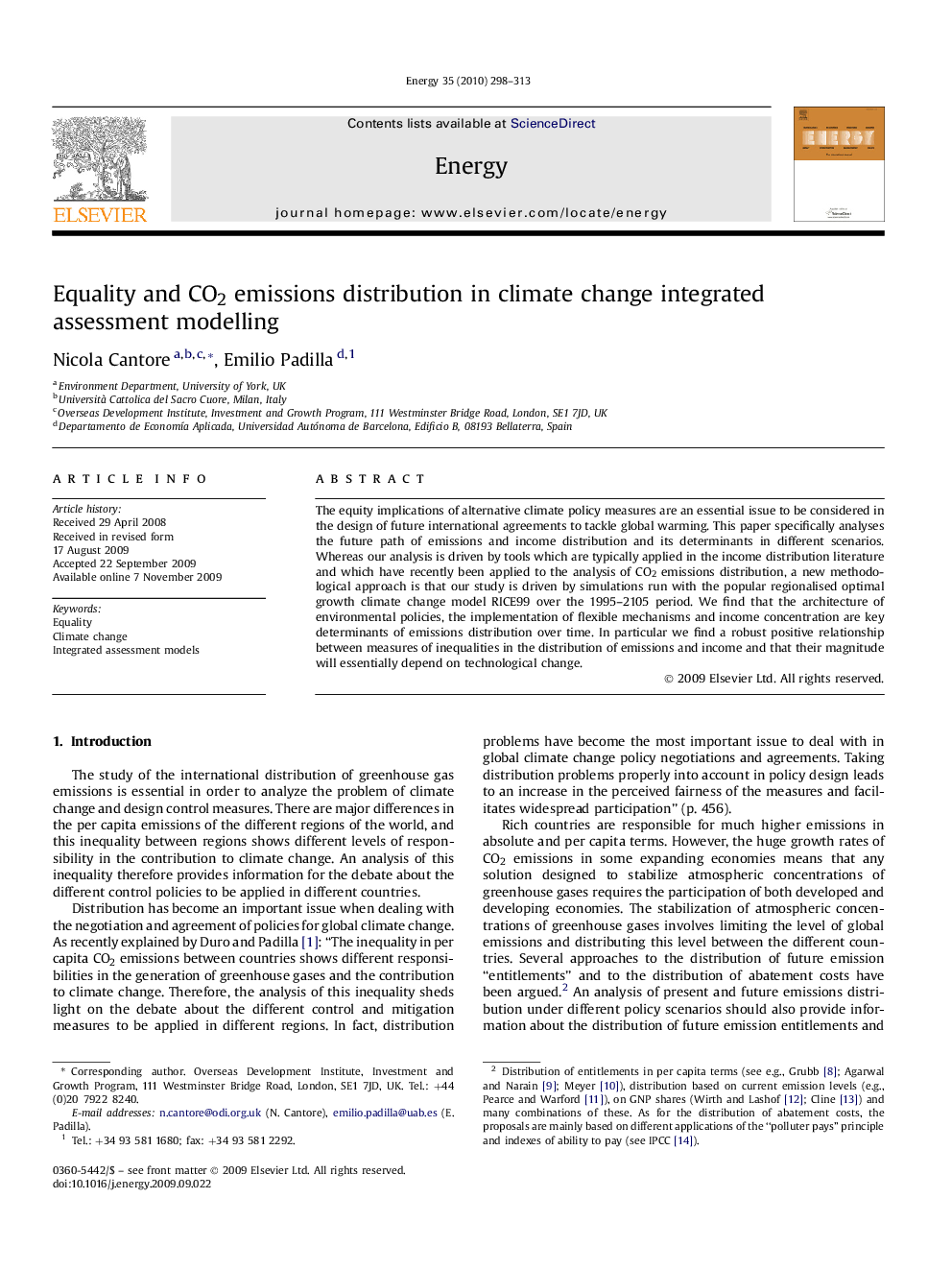| Article ID | Journal | Published Year | Pages | File Type |
|---|---|---|---|---|
| 1735221 | Energy | 2010 | 16 Pages |
The equity implications of alternative climate policy measures are an essential issue to be considered in the design of future international agreements to tackle global warming. This paper specifically analyses the future path of emissions and income distribution and its determinants in different scenarios. Whereas our analysis is driven by tools which are typically applied in the income distribution literature and which have recently been applied to the analysis of CO2 emissions distribution, a new methodological approach is that our study is driven by simulations run with the popular regionalised optimal growth climate change model RICE99 over the 1995–2105 period. We find that the architecture of environmental policies, the implementation of flexible mechanisms and income concentration are key determinants of emissions distribution over time. In particular we find a robust positive relationship between measures of inequalities in the distribution of emissions and income and that their magnitude will essentially depend on technological change.
